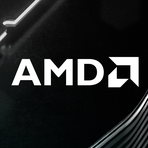Windows 11 Drops Support for Older Processors: What's Happening?
May 3, 2024, 3:33 am
Recently, Microsoft made a bold move by removing support for many older processor models in the Windows 11 operating system. The requirement for the SSE4.2 instruction set in the chip has left many older PCs and laptops incompatible with the OS. What does this mean for users?
To install Windows 11, a modern system with a processor that supports the SSE4.2 instruction set is now mandatory. Older systems, especially those with Intel Core processors from the third generation and older, are no longer supported. While some may try to find workarounds, the critical issue lies in the lack of compatibility with the SSE4 instruction set, which dates back to 2006.
AMD processors with Bulldozer architecture added support for this technology, but the bottom line is that systems from approximately 15 years ago will not work with Windows 11. Microsoft's decision to enforce this requirement has raised concerns among users, but the company shows no signs of backing down.
The rationale behind Microsoft's move is clear: supporting outdated hardware requires resources that could be better allocated elsewhere. With the majority of modern PCs and laptops compatible with Windows 11, the focus is on moving forward rather than catering to a shrinking user base with older hardware.
For users stuck with incompatible devices, options like Tiny Core Linux offer a lightweight alternative. This minimalist Linux distribution can run on older hardware with minimal RAM requirements, providing a viable solution for those unable to upgrade to meet Windows 11's demands.
In conclusion, the shift towards modern hardware compatibility in Windows 11 signals a new era for Microsoft, where legacy systems are left behind in favor of progress. Users are urged to adapt to these changes or explore alternative options to ensure a seamless computing experience.
To install Windows 11, a modern system with a processor that supports the SSE4.2 instruction set is now mandatory. Older systems, especially those with Intel Core processors from the third generation and older, are no longer supported. While some may try to find workarounds, the critical issue lies in the lack of compatibility with the SSE4 instruction set, which dates back to 2006.
AMD processors with Bulldozer architecture added support for this technology, but the bottom line is that systems from approximately 15 years ago will not work with Windows 11. Microsoft's decision to enforce this requirement has raised concerns among users, but the company shows no signs of backing down.
The rationale behind Microsoft's move is clear: supporting outdated hardware requires resources that could be better allocated elsewhere. With the majority of modern PCs and laptops compatible with Windows 11, the focus is on moving forward rather than catering to a shrinking user base with older hardware.
For users stuck with incompatible devices, options like Tiny Core Linux offer a lightweight alternative. This minimalist Linux distribution can run on older hardware with minimal RAM requirements, providing a viable solution for those unable to upgrade to meet Windows 11's demands.
In conclusion, the shift towards modern hardware compatibility in Windows 11 signals a new era for Microsoft, where legacy systems are left behind in favor of progress. Users are urged to adapt to these changes or explore alternative options to ensure a seamless computing experience.
